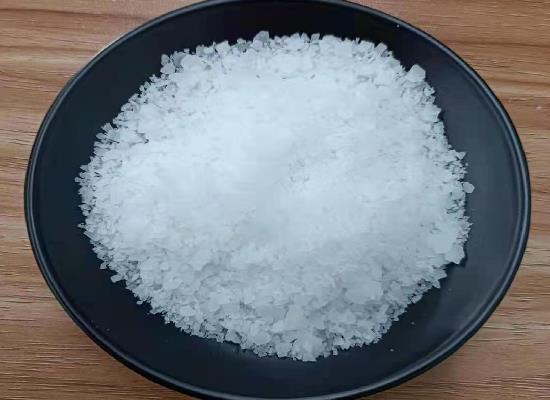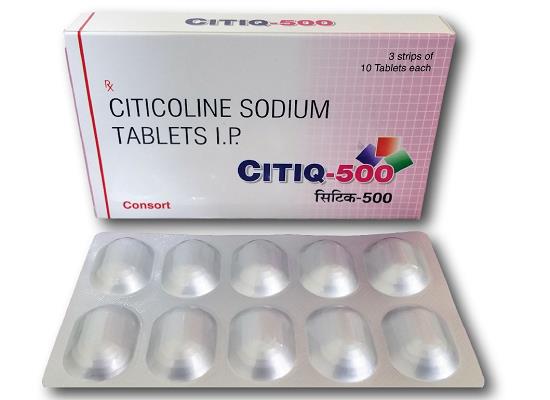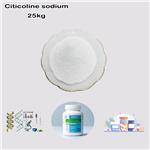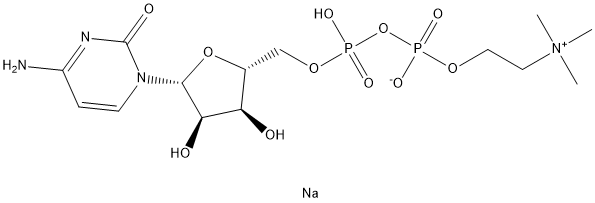Nano-Platform Carrier Enhances Delivery of Citicoline Sodium for Alzheimer's Disease Treatment
Jan 22,2024
General Description
Potassium formate is a non-toxic and non-corrosive carbonization reagent that shows promise for producing porous biochars. These biochars have high sorption performance for organic pollutants. The formation of micropores in Potassium formate-derived biochars plays a crucial role in their sorption capabilities. The surface of these biochars provides sorption sites for pollutants, and their high polarity weakens the partition process, making monolayer sorption dominant. Chemical sorption processes such as H bonding and π-π stacking are also involved. The electrostatic interaction between Potassium formate-derived biochars and pollutants is confirmed by pH-dependent sorption quantity. These biochars exhibit excellent sorption capacity compared to other carbon-based sorbents. Moreover, they can be easily regenerated and reused without significant loss in sorption capability. Overall, Potassium formate-assisted carbonization is a promising method for producing advanced biochars with high sorption performances for environmental applications.

Figure 1. Potassium formate
Properties
Potassium formate is a novel green assist carbonization reagent that has recently been proposed as a non-toxic and non-corrosive substance for the production of porous biochars. Unlike previous methods using strong acids or bases for pyrolysis, which have proven to be corrosive and environmentally unfriendly, Potassium formate offers a promising alternative due to its non-toxic nature. A pre-experiment conducted by Hu Cheng's group demonstrated the crucial role of Potassium formate in forming micropores, leading to the development of porous biochar that shows potential for practical application and promotion. However, the properties of Potassium formate-derived porous biochars and their effectiveness as sorbents for organic pollutants remain relatively unknown. Therefore, a study was conducted to contribute to the understanding of Potassium formate-derived porous biochars and their potential as high-performance sorbents for the removal of organic pollutants. The findings of this study will provide valuable insights into the properties of Potassium formate-derived porous biochars, paving the way for their practical application in environmental remediation. In conclusion, potassium formate presents a promising alternative to traditional carbonization reagents due to its non-toxic and non-corrosive nature. Potassium formate-derived porous biochars have shown potential as high-performance sorbents for the removal of organic pollutants, and further research is needed to fully understand their properties and practical applications. 1
Sorption mechanisms
Potassium formate is a chemical reagent that can assist in the carbonization process of biowaste to produce advanced biochars with high sorption performance. The advanced physico-chemical properties of Potassium formate-OPBs prepared with Potassium formate were found to be responsible for their high-performance sorption of DEP (diethyl phthalate). The micropores in the developed pore structure of Potassium formate-OPBs provided sorption sites for DEP, mainly distributed on the surface of Potassium formate-OPBs. The high polarity with abundant O-containing functional groups weakened the partition process, making monolayer sorption the dominant physical process. The dominant chemical sorption processes of H bonding and π-π stacking were indicated by XPS spectra, XRD patterns, Raman spectra, and FTIR analysis. The electrostatic interaction between DEP and Potassium formate-OPBs was confirmed by changes in the sorption quantity under different pH conditions, with the optimum pH at 6. Although the sorption capability was greatly influenced by pH, the sorption quantity was still extremely high, making Potassium formate-OPBs efficient sorbents for DEP in various environments with different pH. Compared with other reported carbon material-based sorbents, Potassium formate-OPBs obtained from Potassium formate-assisted carbonization exhibited an excellent sorption capacity. Overall, Potassium formate-assisted carbonization is a promising method for preparing advanced biochars with high sorption performances for various environmental applications. 2
Regeneration performance
The regeneration performance of Potassium formate-OPBs refers to their ability to be reused for the efficient sorption of organic pollutants from aqueous solutions. To investigate this, cyclic sorption experiments were carried out on Potassium formate-OPBs, and OPB5, which displayed the highest sorption capability, was selected as the model for the experiments. The results showed that 96% of DEP sorbed onto OPB5 could be desorbed by an ultrasonic washing process with ethanol and methanol. After five cycles, the sorption quantity of DEP onto OPB5 changed slightly but remained as high as 405 mg g−1, with an initial concentration of 80 mg L−1. This result indicated that Potassium formate-OPBs are stable and can be reused for efficient sorption of organic pollutants from aqueous solutions. Additionally, the removal rate of DEP was as high as 93%, indicating that Potassium formate-OPBs have a high efficiency in removing organic pollutants from water. The regeneration performance of Potassium formate-OPBs is crucial for practical applications as it determines their economic worth and environmental sustainability. The ability of Potassium formate-OPBs to maintain their sorption capabilities after multiple cycles of use makes them a viable option for the removal of organic pollutants from water. The results of this study provide evidence that Potassium formate-OPBs can be reused multiple times, making them an economically viable and environmentally sustainable solution for water treatment. 2
Reference
1. Ahmed MB, Zhou JL, Ngo HH, et al. Sorption of hydrophobic organic contaminants on functionalized biochar: Protagonist role of π-π electron-donor-acceptor interactions and hydrogen bonds. J Hazard Mater. 2018; 360: 270-278.
2. Zhang J, Gu F, Zhou Y, et al. Assisting the carbonization of biowaste with potassium formate to fabricate oxygen-doped porous biochar sorbents for removing organic pollutant from aqueous solution. Bioresour Technol. 2022;360:127546.
General Description
Citicoline sodium is a neuroprotective drug that has potential for treating Alzheimer's disease, but its effectiveness is limited by its poor ability to cross the blood-brain barrier. To overcome this, researchers have developed a novel delivery system called TBLs, which can target Citicoline sodium directly to the brain. The optimized TBLs composition has high encapsulation efficiency and sustained-release properties, and can be administered via the intranasal route. In pharmacodynamic tests, the Citicoline sodium-HA*TBLs thermogel outperformed other formulas in reversing hippocampus neurodegenerative injury by boosting cholinergic activity and reducing oxidative stress and inflammatory biomarkers. Therefore, Citicoline sodium-HA*TBLs thermogel offers potential as a neuroprotective and anti-Alzheimer's drug for restoring the integrity of the hippocampus during neurodegenerative disorders.

Figure 1. Tablets of citicoline sodium
Therapeutic Potential for Alzheimer's Disease
Citicoline sodium is a choline supplier that plays a crucial role in the synthesis of phosphatidylcholine, an essential phospholipid in the brain. This neuroprotective drug is commonly used to treat conditions such as Alzheimer's disease, Parkinson's disease, stroke, and brain ischemia. Citicoline offers several benefits for both degenerative and vascular cognitive decline, including suppression of apoptosis, reinforcement of neuroplasticity, and synthesis of phospholipids and acetylcholine. However, when Citicoline sodium is administered orally or parenterally, it rapidly converts to cytidine and choline within minutes. These metabolites are then distributed to various parts of the body before reaching the brain. Despite its high absorption rate and bioavailability of over 90%, only a small percentage of the drug (0.5% when taken orally and 2% when injected) actually reaches the brain. This is primarily due to the strong polarity of Citicoline sodium and its rapid metabolism, leading to the liver's uptake of most of the free choline. As a result, intact drug molecules face significant challenges in crossing the blood-brain barrier. To overcome this obstacle and maximize Citicoline sodium's therapeutic potential in treating Alzheimer's disease, there is a need to develop an appropriate delivery nanocarrier that can target Citicoline sodium directly to the brain. Such a nanocarrier would allow for enhanced drug delivery and ensure that Citicoline sodium reaches its intended site of action, thereby optimizing its therapeutic benefits. 1
Preparation of Citicoline sodium-TBLs
The preparation of Citicoline sodium-TBLs involved a series of steps to optimize the conditions for achieving appropriate size and high encapsulation efficiency. A preliminary screening and statistical analysis were conducted to determine the optimal combination of variables, including the amount of lipid, surfactant, bile salt, drug, hydration medium, and sonication time. TBL vesicles were obtained using a combination of PL, cholesterol, and SP60 as the lipid phase and surfactant. SDC was used as an edge activator at varying amounts to improve the stability of the nanovesicles. The optimal conditions for successful vesicle preparation included 50 mg of Citicoline sodium, 10 mg of cholesterol, a chloroform:methanol ratio of 2:1 as the organic solvent, and SENS pH 5.5 as the hydration medium. The hydration process lasted for 1 hour, followed by sonication for 30 minutes to form nanovesicles. These conditions were determined to achieve the highest EE% and ensure the stability of the nanovesicles. 2
Citicoline sodium by Nano-Platform Carrier for Alzheimer's Disease Treatment
A study conducted a novel approach for the treatment of Alzheimer's disease using Citicoline sodium as the key component. A new nano-platform carrier called TBLs was created for intranasal administration of Citicoline sodium. The TBLs were optimized using the Box-Behnken design and decorated with HA. The improved TBLs composition had high encapsulation efficiency percentage, sustained-release Q8h, high permeation Q24h, minor VS, and high ZP. The Citicoline sodium-HA*TBLs thermogel overcame the two main barriers to Citicoline sodium's passage through the blood-brain barrier: high hydrophilicity and rapid metabolism. The Citicoline sodium-HA*TBLs thermogel delivered Citicoline sodium to the brain professionally and quickly via the intranasal route. In pharmacodynamic tests, the Citicoline sodium-HA*TBLs thermogel outperformed other formulas significantly. According to the in vivo findings, the Citicoline sodium-HA*TBls formula might be promising agents for treating neurodegenerative disorder by reversing hippocampus neurodegenerative injury by boosting cholinergic activity through down-regulation of hippocampus miR-137 and Aβ1–42 expression in conjunction with a reduction in oxidative stress biomarker release MDA and inflammatory NF-kB biomarkers. Therefore, Citicoline sodium-HA*BLs thermogel offers potential as a neuroprotective and anti-Alzheimer's drug for restoring the integrity of the hippocampus during neurodegenerative disorders. 2
Reference
1. Adibhatla RM, Hatcher JF. Cytidine 5'-diphosphocholine (CDP-choline) in stroke and other CNS disorders. Neurochem Res. 2005;30(1):15-23.
2. AbouElhassan KM, Sarhan HA, Hussein AK, Taye A, Ahmed YM, Safwat MA. Brain Targeting of Citicoline Sodium via Hyaluronic Acid-Decorated Novel Nano-Transbilosomes for Mitigation of Alzheimer's Disease in a Rat Model: Formulation, Optimization, in vitro and in vivo Assessment. Int J Nanomedicine. 2022;17:6347-6376.
- Related articles
- Related Qustion
- Preparation and Uses of Citicoline sodium injection Oct 21, 2024
Citicoline sodium injection is an injectable pharmaceutical composition for the treatment of acute craniocerebral trauma and brain surgery-induced disorders of consciousness.
- Nano-Platform Carrier Enhances Delivery of Citicoline Sodium for Alzheimer's Disease Treatment Jan 22, 2024
Nano-platform carrier enable targeted delivery of Citicoline sodium to the brain, showing potential as anti-Alzheimer's drug by boosting cholinergic activity and reducing neurodegenerative damage.
- Citicoline sodium: physiological effects and clinical applications Sep 14, 2023
Citicoline sodium enhances cognitive function, protects the brain, and shows potential in treating stroke and Alzheimer's disease.
Supplementation with pyridoxal 5'-phosphate monohydrate can synthesize neurotransmitters such as dopamine and serotonin, maintaining a healthy nervous system.....
Nov 4,2025Biochemical EngineeringSomatotropin stimulates ovarian function, improves reproductive outcomes in assisted reproductive technology, and enhances oocyte maturation and endometrial receptivity in in vitro fertilization.....
Jan 22,2024APISupplementation with pyridoxal 5'-phosphate monohydrate can synthesize neurotransmitters such as dopamine and serotonin, maintaining a healthy nervous system.....
Nov 4,2025Biochemical EngineeringSomatotropin stimulates ovarian function, improves reproductive outcomes in assisted reproductive technology, and enhances oocyte maturation and endometrial receptivity in in vitro fertilization.....
Jan 22,2024APICiticoline sodium
33818-15-4You may like
Citicoline sodium manufacturers
- Citicoline sodium
-

- 2025-12-12
- CAS:33818-15-4
- Min. Order:
- Purity: 0.99
- Supply Ability:
- Citicoline Sodium
-

- $5.00/ KG
- 2025-12-12
- CAS:33818-15-4
- Min. Order: 0.10000000149011612KG
- Purity: 99% hplc
- Supply Ability: 5000kg
- Citicoline sodium
-

- $0.00 / 1KG
- 2025-12-12
- CAS:33818-15-4
- Min. Order: 1KG
- Purity: 98.0%
- Supply Ability: 1000kg/month






